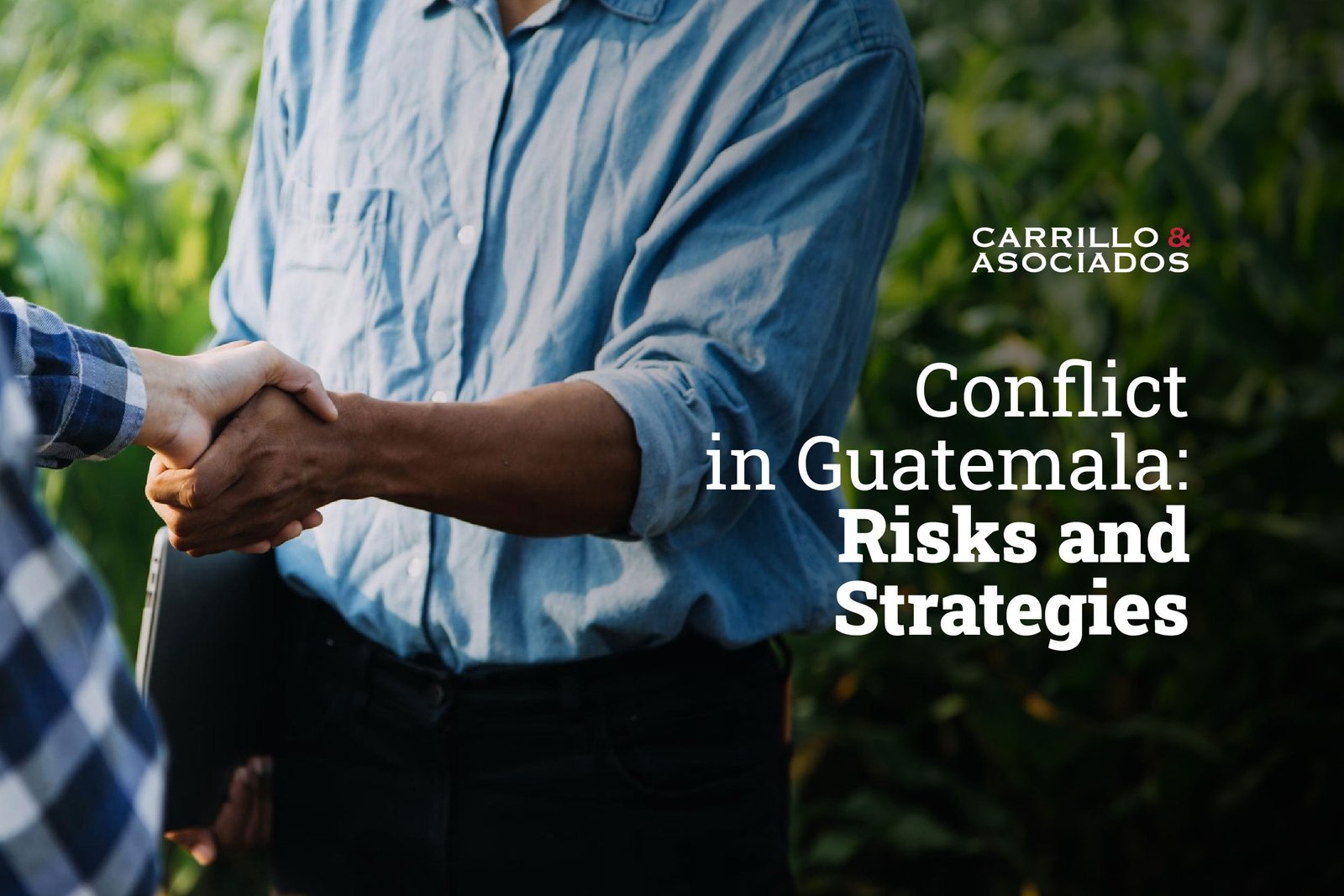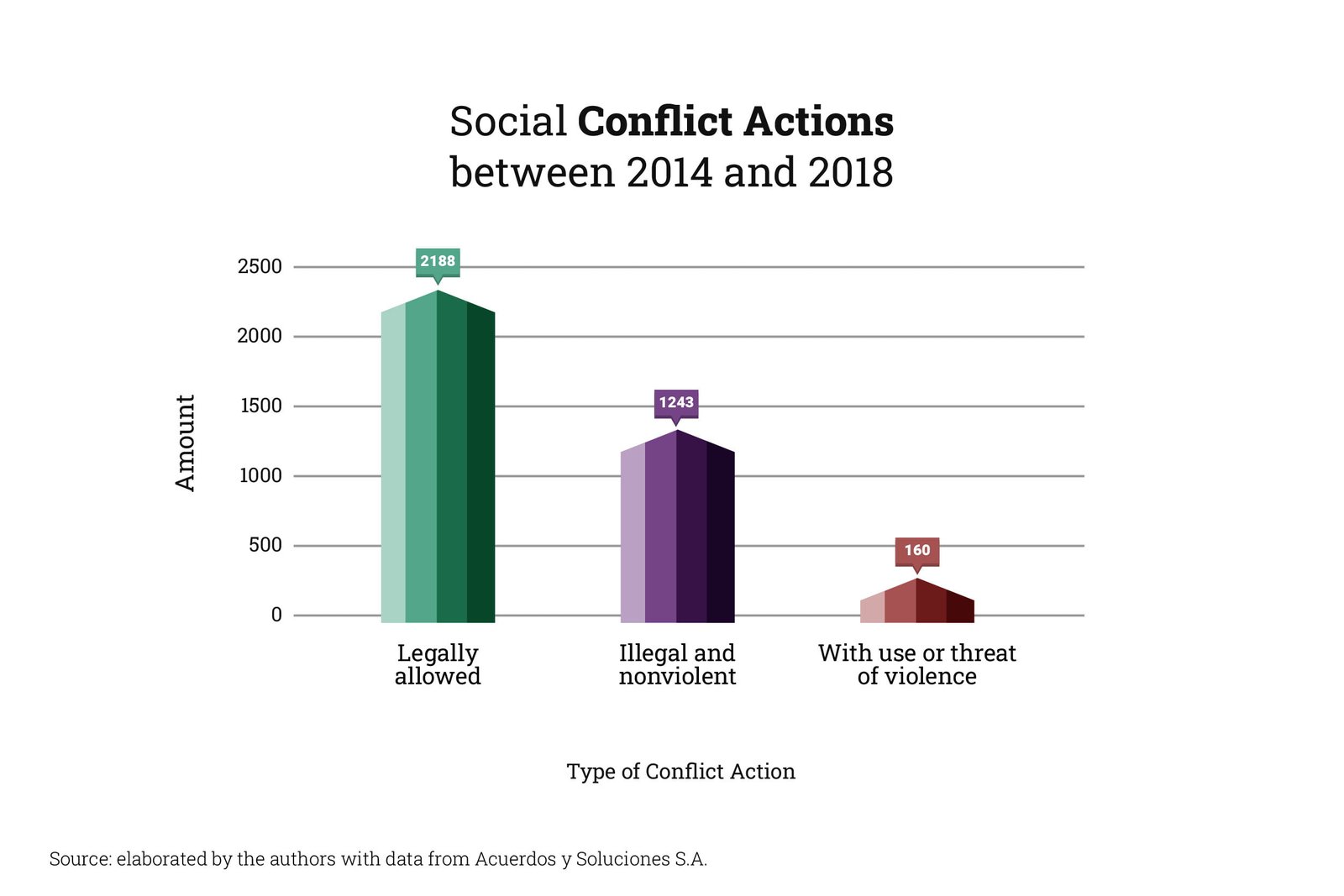
Has your supply chain ever been affected by a blockade carried out by people on the roads? Have you faced conflicts over the use of water, land, or energy in Guatemala?
Resolution social conflict refers to disagreements between two or more groups, whether they are companies, communities, associations, municipalities, or others. In Guatemala, this is a recurring and costly phenomenon for businesses, workers, the state, and its inhabitants.
A study conducted by Acuerdos y Soluciones investigated the economic impact of social conflict in Guatemala. In 2018 alone, there were 139 blockades, which were estimated to represent Q156.7 million (US$20.2 million) in losses for the transportation sector.
Another study conducted by the Central American Business Intelligence (CABI) Economics delves into the costs associated with conflict in the energy sector. It provided estimates of the negative impact on the industry, the private sector in general, Guatemalan households, and the government. Its optimistic projection is that in 2024, conflicts will cost Q2.4 billion (US$309 million).
Communities may oppose the operation of various organizations for several reasons. These include property and use of land and natural resources; extractive and energy projects; access to water; opposition to environmental degradation; political disagreements; and labor disputes, to name a few.
Social conflict is a complex problem that entails a series of risks. The good news is that we can offer recommendations to mitigate them.
Types of Conflicts
Wanting study establishes three categories of conflict actions: legal actions, illegal non-violent actions, and the use or threat of violence.
The first category encompasses actions permitted by law such as demonstrations, media protests, sit-ins, and lawsuits. Illegal non-violent actions include the occupation of facilities (without damaging them) and road blockades. Finally, the use or threat of violence includes the destruction of public and/or private property, clashes with authorities and residents, and even land invasions.

Recommendations
Social conflicts manifest in different ways. To address them, we have prepared a series of recommendations that you can implement to prevent or mitigate them.
1. Develop a Community Relations Policy to Address Conflict
Guatemala is a multiethnic, multicultural, and multilingual country. This diversity of values, perceptions, and ways of communicating inevitably generates conflicts.
Therefore, it is essential to identify the local actors and social groups that will have the most interest and influence in your operations and define the appropriate approaches for each. This is important to identify potential areas of conflict and address them before a problem erupts.
Not all communities have the same authority figures and interests. Therefore, it is essential to map out the right people and engage with figures such as the mayor, indigenous leaders, religious authorities, unions, and local assembly representatives, to name a few. Additionally, each group will have different concerns: environmental, labor, religious, among others, and it is important to recognize and address them.
The key is to know the actors within the territory where your organization operates. These leaders are increasingly educated and have more sophisticated demands. Therefore, it is vital to listen to the community, have defined action plans, and act in a timely manner.
By knowing how locals perceive your company, you can take actions to prevent costly conflicts and establish frequent dialogue with the communities near you. You might even find a beneficial collaboration opportunity where there was previously a risk of conflict.
2. Consider Road Blockades in your Contracts
Your operation may be affected by external conflicts. This will especially happen when there are blockades, protests, and clashes between different groups that disrupt your logistics chain, and it can happen in any jurisdiction.
In February 2023, the Guatemalan Chamber of Commerce reported that blockades at various points in the country had caused over 200 hours of cumulative delays. These occurred when electoral authorities denied the registration of a presidential ticket, a conflict unrelated to businesses.
Given that these obstacles are a recurring reality in Guatemala, a strategy to mitigate their impact is to strengthen your contracts to account for these scenarios in your supply chain. This way, blockades will not generate disputes between companies, clients, and suppliers, and instead, there will be a clear path to offer solutions. You can find more details in this publication.
3. Comply with Prior Consultation Processes in Indigenous Communities
The Constitution recognizes the importance of indigenous peoples and their culture. Similarly, it establishes that international human rights treaties ratified by Guatemala have preeminence over domestic law.
Therefore, the International Labor Organization (ILO) Convention 169 on Indigenous and Tribal Peoples has gained relevance. The agreement affirms the right of indigenous communities to be consulted in planning and implementing large-scale projects such as energy and extractive industries.
By ratifying the convention, the State of Guatemala committed to regulating prior consultation processes. Unfortunately, Congress and the Executive have not developed a procedure for carrying them out nor have they identified which industries it applies to.
As a result, the Constitutional Court has established processes for the cases of mining and energy that have been addressed[1]. We have identified three types of procedures that have been used:
- Cases in which the municipal council determined that a consultation was necessary.
- Intervention of the Indigenous Peoples and Interculturality Cabinet.
- Intervention of the Ministry of Energy and Mines (MEM).
A common factor is that the intervention of a state entity is always necessary in consultation processes, whether from the Executive or the local government.
Therefore, if your organization requires a prior consultation process, the first step is to approach an executive authority to assist with mediation.
It is important to consider the right to prior consultation to avoid legal conflicts against your organization. It is preferable to avoid this scenario rather than risk a potential judicial suspension in the future.
If you have any questions or require more information, we are at your disposal.


[1] For example, the ruling of January 12, 2016, accumulated files 5705-2013 and 5713-2013.